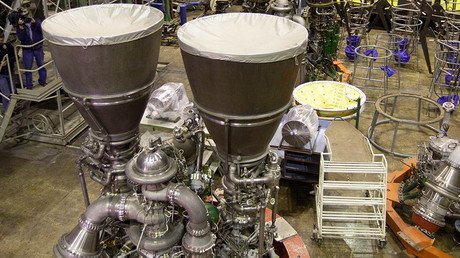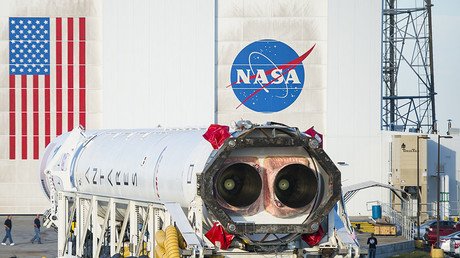‘Inconsistency of vision & political squabbles’: NASA losing leadership in space
NASA continues missing deadlines and going far beyond budget limits, a new report by Government Accountability Office (GAO) has revealed. Industry experts told RT that the core of the problem lies in a lack of consistency of vision amid constant political squabbles.
"Although NASA’s overall performance has improved, for eight out of the last nine years at least one major project has experienced significant cost or schedule growth," a Government Accountability office report stated on Wednesday. Problems usually occur in later stages, when projects are close to being tested, integrated or assembled, it said.
READ MORE: ExoMars: Joint Russia/Europe rocket successfully sets off on long journey to Red Planet
On a wider scale, however, the cost of NASA’s space programs and their age have been steadily decreasing, the report showed.
Last month another report suggested that NASA has lost its leadership position in space exploration and its funding depended on politics. The white paper entitled “Ensuring US Leadership in Space” was introduced at the National Press Club in Washington, D.C. and presented on behalf of representatives from a coalition of 13 leading US space organizations , including Space Foundation and the Commercial Spaceflight Federation.
A former NASA astronaut and space station commander, Leroy Chiao, told RT that NASA has not yet lost its leadership in space, but its position has certainly “decreased” since 2011, when the US space agency lost its ability to send people into space with the retirement of Shuttle program.
Meanwhile Brendan Curry, vice president for Space Foundation non-profit, blamed NASA’s inefficiency on carrying out projects on government administration.
“We’ve been spending a lot of time and money with respect to civilian space exploration. NASA will be given a mandate to go do some sort of mission or develop some new type of spacecraft and a new administration will come in and redesign or cancel that program and NASA will be forced to start from scratch again,” Curry told RT.
“That just results in time and money being wasted in many ways,” he said, adding that NASA’s funding faces problems due to lack of “consistency of vision.”
One spectacular example of “political squabbles”, as Curry called them, affecting space exploration is a push by some US politicians like Sen. John McCain to abandon Russian-made rocket engines under a national security pretext – and in the absence of a viable alternative.
The most reliable US rocket company, United Launch Alliance, dropped out of competition with SpaceX in late 2015 for an Air Force payload, amid vocal debates in the Senate on whether to allow the company to continue using Russian RD-180 engines.
Astronaut Chiao agrees that domestic and global politics “inextricably intertwine” with space projects, but pointed out that such a phenomenon as the International Space Station (ISS), proves that major players can “be allies at least in that one area of civil space.”
Politics should not stand in the way of nations working together, Chiao insists. He called the ISS a “shining example” of how former cold war enemies overcame tension and began working on something “bigger.”
READ MORE: American ISS astronaut broke 'no politics' rule to stand with Russia
Private sector could become a way to alleviate funding problems for NASA, which would use its scarce resources more wisely and carry out deeper research if commercial sector manages to lower the costs. Curry believes that private entities should be a “backfill” while NASA focuses on carrying out new explorations.














